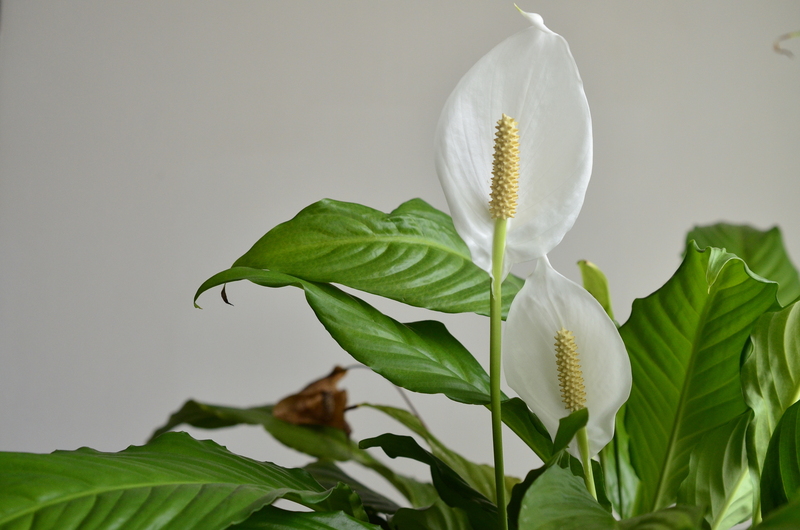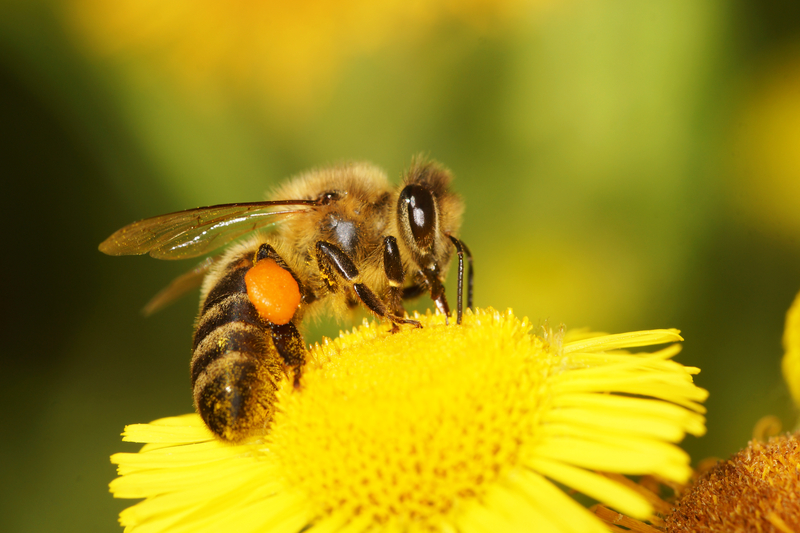Herb Gardening: A Path to Savory Success
Posted on 13/09/2025
Herb Gardening: A Path to Savory Success
Herb gardening is not just a trend--it's a lifestyle that brings aromatic beauty, culinary delight, and health benefits right to your doorstep. Whether you're a seasoned gardener or a complete beginner, cultivating herbs unlocks a world of flavor, fragrance, and satisfaction. In this comprehensive guide, we'll explore everything you need to know to turn your herb gardening aspirations into a vibrant, savory success.
Why Consider Herb Gardening?
The popularity of home herb gardens has surged in recent years, and for good reason. Fresh herbs provide home cooks and chefs with ingredients far superior to their dried or store-bought counterparts. Herb gardening offers a host of benefits, including:
- Cost savings on grocery bills
- Continuous supply of fresh, flavorful herbs
- Minimal space requirements--perfect for small homes or apartments
- Health benefits from nutritious, chemical-free herbs
- Decorative appeal for your indoor or outdoor space
But what does it take to cultivate the perfect herb garden? Let's dig deeper into herb gardening success.

Getting Started: Choosing the Right Herbs for Your Garden
Selecting the best herbs to grow is essential for creating a rewarding and low-stress gardening experience. Consider these aspects when deciding which herbs to plant:
- Your culinary preferences--Which herbs do you frequently use in the kitchen?
- Your local climate--Select herbs that thrive in your region's temperature and weather.
- Available space--Some herbs require large pots, while others can flourish in compact spaces or even windowsills.
- Light availability--Most herbs prefer 6-8 hours of sunlight daily, but some tolerate shade.
Top Herbs for Beginners
- Basil: A staple for Italian dishes; thrives in warm, sunny spots.
- Mint: Perfect for teas and desserts; best grown in containers to avoid spreading.
- Rosemary: A hardy, aromatic herb; prefers dry, well-drained soil.
- Parsley: Versatile for salads and garnishes; grows well in both sun and partial shade.
- Chives: Excellent for salads, soups, and as a garnish.
- Thyme: Highly fragrant and works well with meats and vegetables.
- Cilantro: Essential in salsas and Mexican dishes, though it bolts quickly in heat.
Planning ?Your Herb Garden for Optimal Success
Before planting, it's vital to plan your garden's layout to ensure your herbs thrive. Here are some tips:
- Location, location, location: Ensure your herbs have access to sufficient sunlight. South-facing windowsills or balconies are ideal for indoor herb gardens, while outdoor gardens should be placed in areas receiving at least 6 hours of sun.
- Garden type: Decide between a traditional garden bed, raised beds, or container gardening. Container herb gardens are perfect for patios or indoors, offering flexibility and easy mobility.
- Herb compatibility: Some herbs, like mint, are aggressive growers and should be planted separately to avoid crowding out neighboring plants.
- Grouping by water needs: Place herbs with similar moisture requirements together to avoid over- or under-watering.
Soil, Water, and Sun: The Essential Trio
Soil preparation is crucial for herb gardening success. Most herbs prefer:
- Well-draining soil--use a quality potting mix with added organic matter
- Consistent moisture, but not waterlogged conditions
- Sunlight--6 to 8 hours for most herbs, though some tolerate partial shade
Planting and Maintaining Your Herb Garden
Once you've planned your layout and selected herbs, it's time to plant and care for your garden. Here's how to ensure your herbs prosper:
Step-by-Step Herb Planting Guide
- Prepare the soil: Loosen garden soil or fill containers with a high-quality soilless mix. Amend with compost for added nutrients.
- Sow seeds or plant seedlings: Some herbs, like basil, are easy to start from seed, while others (like rosemary) do better as seedlings.
- Space your plants: Check seed packets or labels for proper spacing to avoid overcrowding, which can lead to disease and stunted growth.
- Water thoroughly: Give your newly planted herbs a hearty drink but avoid saturating the soil.
- Mulch and label: Use organic mulch to retain moisture and suppress weeds, and label your herbs for easy identification.
Daily & Weekly Herb Care Tips
- Water regularly, but check for soil moisture first--damp, not soggy, is ideal.
- Pinch back and prune often to encourage bushy growth and abundant harvests.
- Fertilize sparingly--herbs don't require heavy feeding; monthly applications of organic fertilizer suffice.
- Watch for pests like aphids and spider mites. Remove by hand or use safe organic methods.
- Rotate outdoors/indoors as needed for temperature changes--especially for potted herbs.
Indoor vs Outdoor Herb Gardens: Pros, Cons, and Tips
Both indoor and outdoor herb gardens offer unique benefits. Your choice may depend on climate, space, or personal preference.
Advantages of Growing Herbs Indoors
- Year-round growing, regardless of weather conditions
- Close proximity to the kitchen for easy harvest
- Control over pests and temperature
- Great for small spaces like apartments or condos
Benefits of an Outdoor Herb Garden
- Larger yield due to access to natural sunlight and pollinators
- More space for a bigger variety of herbs
- Low-maintenance watering from rainfall (in suitable climates)
- Natural aesthetics for patios and yards
*Tip: You can also combine indoor and outdoor herb gardens for the best of both worlds.*
Common Herb Gardening Challenges (and How to Solve Them)
Overwatering or Poor Drainage
Herbs hate soggy soil. Ensure pots have drainage holes, and let the top inch of soil dry out between waterings.
Insufficient Sunlight
If your herbs grow leggy or pale, move them closer to a sunny window or supplement with grow lights.
Pests and Diseases
Check leaves regularly for signs of pests or mildew. Hand-pick insects or use neem oil as an organic control. Avoid overhead watering to reduce fungal diseases.
Bolt or Pre-mature Flowering
Some herbs, like cilantro and basil, go to seed quickly in heat. Harvest leaves regularly and provide shade during hot afternoons to slow bolting.
How to Harvest and Store Your Homegrown Herbs
One of the joys of herb gardening is enjoying the literal fruits of your labor. Here's how to maximize flavor and longevity:
Best Practices for Harvesting Herbs
- Harvest in the morning after dew has dried, when oils are most concentrated.
- Pinch or snip above a leaf node to encourage regrowth and bushiness.
- Don't overharvest--never remove more than 1/3 of the plant at a time.
- Use sharp, clean scissors or pruners to avoid damaging plants.
Preserving Herbs for Future Use
- Drying: Hang herbs upside down in a cool, airy place or use a food dehydrator.
- Freezing: Chop herbs and freeze in ice cube trays with olive oil or water for ready-to-use portions.
- Infusing oils and vinegars: Preserve flavor for salad dressings and marinades.
The Many Uses of Fresh Herbs from Your Garden
Herbs are more than just a garnish--they can transform any meal. Here are some inspiring uses:
- Culinary arts: Elevate dishes like soups, stews, salads, sauces, and more.
- Infusions: Make refreshing herbal teas or flavored waters.
- Beauty: Create homemade skincare products like balms and face masks.
- Natural remedies: Soothe minor ailments using traditional herbal remedies--always use caution and consult a professional.
- Bouquets and potpourri: Add scent and beauty to your home.
Essential Tips for Savory Success in Herb Gardening
- Start small: Don't overwhelm yourself--begin with a few easy herbs and expand as you gain confidence.
- Label everything: Especially when dealing with similar-looking seedlings.
- Be patient: Some herbs take time to establish--persist, and you'll be rewarded.
- Embrace experimentation: Try new flavors and techniques, and don't fear a little trial and error.
- Share your harvest: Herbs make thoughtful gifts for friends, neighbors, and family.

Sustainable Herb Gardening: A Green Win
Herb gardening is inherently eco-friendly. Enhance its sustainability by:
- Using organic seeds and fertilizers
- Reducing food miles by growing your own
- Composting kitchen and garden waste to enrich your soil
- Conserving water with mulching and proper watering techniques
- Encouraging pollinators by letting some herbs flower
Your Herb Gardening Journey Awaits!
Embarking on the path of herb gardening is more than just a hobby--it's a rewarding, flavorful journey that nurtures both your palate and your soul. From planning to harvesting and savoring, every step brings you closer to herb gardening success. So gather your seeds, pots, and gardening gloves--your savory success story starts with a single plant!
If you're ready to experience the aroma, beauty, and taste of fresh herbs in your life, there's no better time to get started. Happy gardening!
Latest Posts
Embarking on the Journey to Beautify Your Unkempt Garden
Designing a Carefree Garden without Stretching Your Budget
Create a Lush Escape with Modern Zen Gardening Ideas for Harmony
Crafting a Green Space Brimming with Child-Friendly Features

